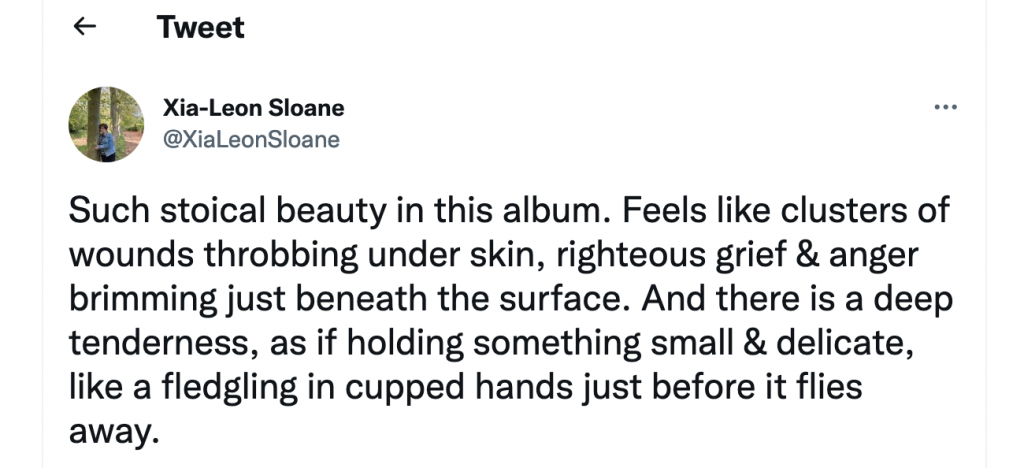September 11th.
A date shot through with sadness in any year.
An anniversary that doesn’t end in a zero or a five is no less significant.
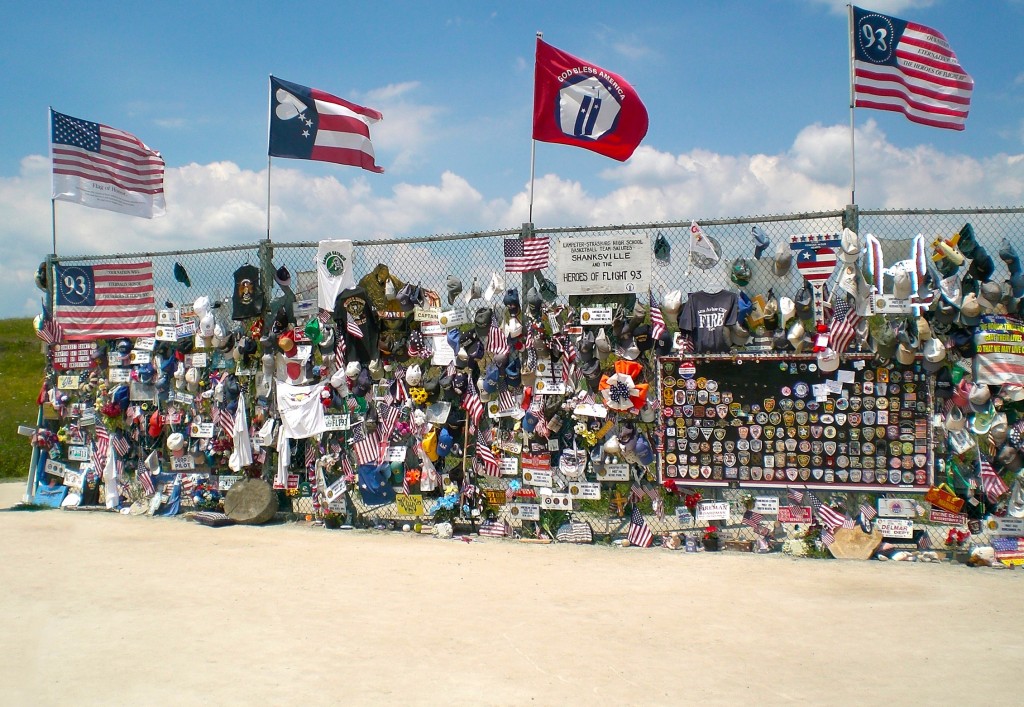
One year on from the twentieth anniversary, I thought it worth revisiting my work on the 9/11 commemoration. You might be wondering why I did it. You might be wondering if music can – or even should – commemorate anything, let alone the terrible events of that day.
I prefer to let audiences answer that question. Any performance is a coming together of people or communities. Performers have a responsibility to consider those communities whilst programming music that is as vital and immediate for as many communities as they can.
When it comes to the complex issue of commemoration, programming is an important but near-impossible task, especially when the events are relatively raw in memory. In 2012 I organised commemorative concerts in response to the centenary of the sinking of Titanic. Even though the events took place over 100 years ago, the range of emotional responses evident in Southampton’s Guildhall on the night of the centenary itself was very striking. Many audience members were overcome; others were ambivalent. A small portion responded with laughter, which obviously seemed inappropriate (but then again how many of us have ever been weirdly tempted to laugh during funerals?). Commemoration may be communal, but the individual response is difficult, fickle and (deeply) personal.
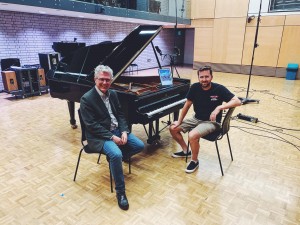
Therefore, I thought it worth jotting down my own personal reflections a year on from one of the most intense projects I have ever undertaken. I mean intense in every sense. My friend Kevin Malone sowed the seed for the project only a few months earlier, in March 2021. His epic and extraordinary Sudden Memorials, composed in only six weeks, is the centrepiece of the album ‘9/11:20’. Alongside his piece are haunting and atmospheric works by Karen Walwyn and David Del Tredici. These were highlighted to me by the author Tim Rutherford-Johnson, who also wrote the liner notes for the album. All the music (apart from three short pieces by Henry Cowell) needed to be learnt from scratch. In less than four months I was in a studio at the Royal Northern College of Music, whose research department provided crucial support for the project. The record label Coviello Contemporary, and especially producer Aaron Holloway-Nahum, worked wonders in ensuring the album appeared in time for the commemoration at the Wigmore Hall at the precise moment, 20 years on, since the 9/11 attacks.

Intensity breeds anxiety. A fortnight before the Wigmore Hall performance, the BBC aired a program called ‘Surviving 9/11’. The first contributor was an artist, Vanessa Lawrence, whose beautiful work appears on the front cover of the album. Vanessa had been on the 91st floor of the North Tower when the first plane hit. You can watch a portion of her contribution to the program here. While watching this powerful testimony I began to stare down these difficult questions. How could a piano recital even begin to grapple with the horror and grief of the 9/11 attacks, not to mention the thousands of individual tragedies beyond the photographs (images that, in Tim’s liner note, are “burned into retinas”)?
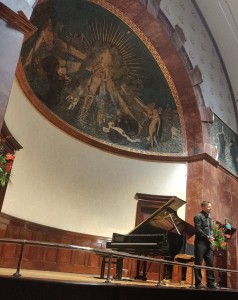
With nerves seriously jangling, I decided to run the concert through for some friends in advance of the Wigmore gig. One of the many wonderful things about living in Brighton is that it is relatively easy to find a hospitable venue (in this case St Luke’s Church on Queens Park Road) as well as open-minded musical enthusiasts – one of whom is the writer and frequent Radio 3 contributor Christopher Hawtree. The positive response of Chris and other listeners gave me much more confidence, and as a result the Wigmore Hall performance was a success. The poignancy and solidarity in the room was tangible.
The record also attracted attention, particularly online. Spotify added it to one of their editorial playlists which meant that, for just one week only (!), thousands listened. Hard copy sales at concerts and elsewhere also meant that I was able to donate £240 to the US-UK Fulbright Commission whose community, alongside the cultural affairs office of the US Embassy, I involved in the project. As a Fulbright scholar myself, I witnessed the kind of international cooperation through educational exchange that allows the world to progress through knowledge and respect. (It’s revealing that Donald Trump’s administration tried to cut Fulbright’s funding in half.)

In broadcast media, I was once again reminded why the licence fee is my favourite monthly outgoing. BBC Radio Manchester undertook a nice interview with Kevin, and Andrew McGregor was once again generous with both playing and reviewing the album on BBC Radio 3’s Record Review (as he had been with my first solo album ‘(speak to me)’). However, the real litmus test would be the reaction from the US, so I was pleased to receive a warm review in Records International as well as subscription mag Fanfare. (Amusingly, the latter distinctly didn’t warm to the first album: “Physician, heal thyself! Minus one for the polemics!”). WNYU, New York University’s radio station, also broadcast the album in a program that coincidentally included a performance by Mallory Thompson’s NU Symphonic Wind Ensemble, on which I play celeste. That was a moving reminder of my own time in the US between 2003 and 2006.
In print media, Pianist Magazine gave a preview, Scene Magazine and Hong Kong’s Interlude gave reviews, and the album was written up by entrepreneurial writers Robert Hugill and Stephen Page. Gramophone and other specialist review magazines didn’t pick up on it. I suspect they prefer to focus on embalming the classical canon just for collectors, and my broad-based programming aims to be more audience-facing than that.
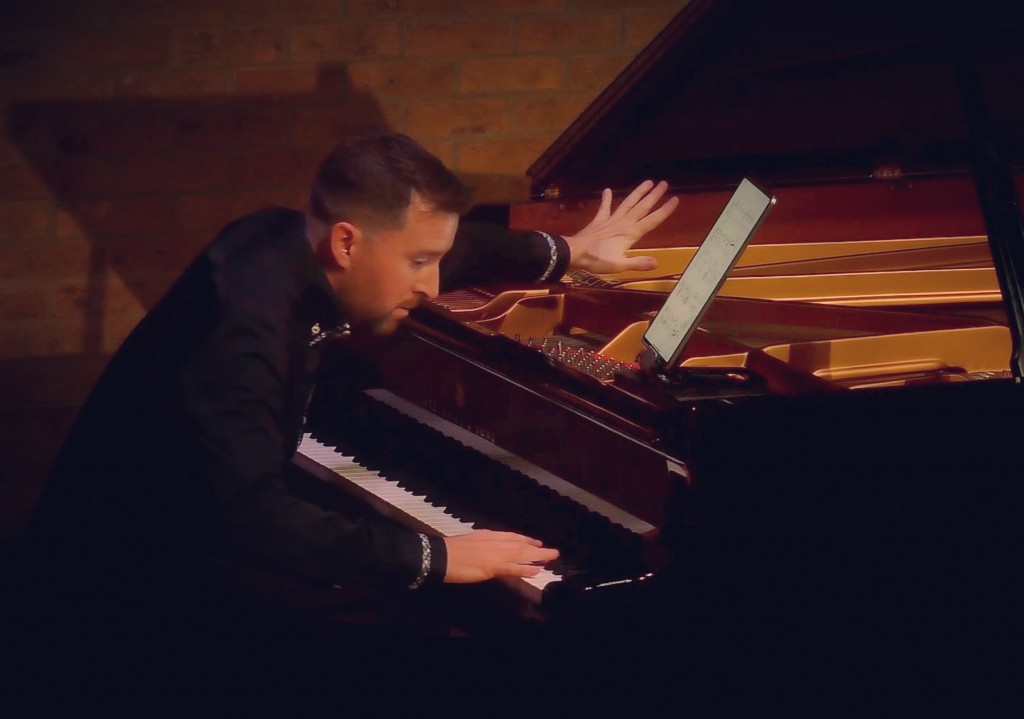
The programme has also found legs beyond the obvious trappings of the anniversary. Tim, Kevin and I gave an RNCM Research Forum in which I presented another performance of Sudden Memorials, and I played it again at Oxford Lieder Festival alongside works by Tom Coult. These were well-received, but a repeat of the Wigmore recital which I gave at Forsyth’s Music in Manchester was offered a more lukewarm reception, with the manager Emma Loat seemingly perplexed by the melancholic music. It’s obviously not everyone’s idea of a traditional recital.
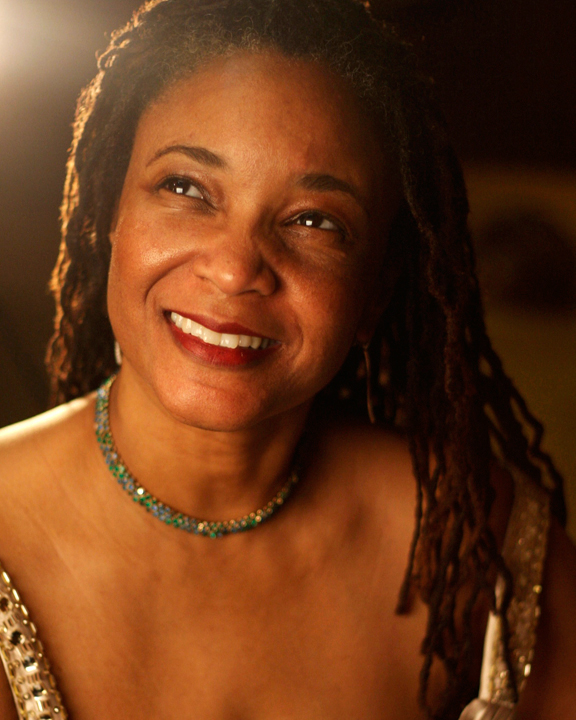
The various reverberations of the project have been interesting, instructive and revealing. Taking a step back from the intensity of last year and making a note of the public reaction has helped me better understand audiences, as well as the rights and wrongs of taking programmatic risks. However, I have two favourite ‘off the books’ personal responses I’d like to share by way of conclusion. The first is from the composer Karen Walwyn, who told me that, although she hasn’t written new music since the pandemic, the album had inspired her to finally compose again. By the way, do find out what Karen does when she isn’t writing exquisite music. Check out her website to discover her amazing recordings as a pianist as well as her pioneering work on Florence Price.
The final reaction is a poetic tweet from the superb composer Xia-Leon Sloane. What I find especially moving is that they have described, based on listening alone, exactly the kind of physical movement that Kevin asks me to perform in his theatrical score. When approaching the unimaginable, perhaps only sounds and silent gestures can express what words can never say.
